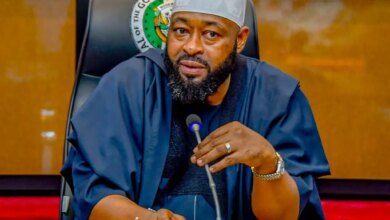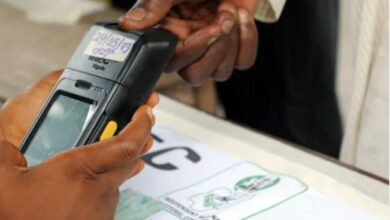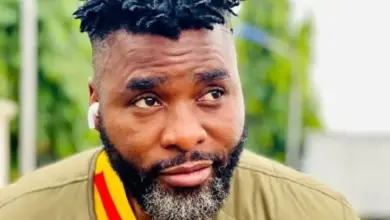A nation’s birthright at stake? The socio-environmental trade-offs of galamsey in Ghana

Rivers running a sickly shade of chocolate brown, cratered landscapes resembling war zones, and vast tracts of forest stripped bare are all tragically familiar images. The phenomenon known as galamsey, or illegal small-scale mining, has forced Ghana to face its own painful reality. We are forced to consider a question that goes right to the core of our national identity: are we selling the birthright of future generations in order to make short-term money?
We do not use the word “birthright” carelessly. It conjures up a pass-down of a sacred trust or inheritance. This birthright for Ghana is our natural endowment, which includes the fertile soils that sustain us, the lush rainforests that serve as our country’s lungs, and rivers like the Pra, Ankobra, and Offin that are not only bodies of water but also the lifeblood of communities, sources of irrigation, drinking water, and cultural spirit. Our future health, ecological security, and prosperity are all based on this natural capital. A dangerous present is being mortgaged for this future by the unrelenting progress of galamsey.
To portray this crisis as a straightforward tale of good versus evil, however, is to fail to recognise its underlying complexity. Because of the incredibly challenging socio-environmental trade-offs, answers have proven to be elusive. On one end of the spectrum are the obvious and instantaneous financial gains. The galamsey provides a lifeline for a country that is struggling with youth unemployment. It gives thousands of young men and women who don’t see any other way to make a living. From the local food vendor to the cabbie, the cash flow has an impact on local economies. This economic rationale is strong and alluring, generating a strong constituency that defends the practice.
Moreover, there are extensive and lengthy chains of complicity. Corrupt officials, traditional leaders, and powerful individuals who make a lot of money off the chaos frequently have to make the trade-off between their accountability and a piece of the illegal gold. Because of this corruption, the collective birthright is traded for private luxury cars and offshore bank accounts, perverting the trade-off from a national quandary into a personal betrayal.
The environmental cost is nothing short of catastrophic, but what is on the other end of the spectrum? Deforestation jeopardises our ability to combat climate change globally and destroys biodiversity. The use of cyanide and mercury contaminates water supplies, seeps into the food chain, and manifests in human bodies. Numerous studies and the Health Ministry have warned of an imminent public health emergency—a rise in birth defects, neurological conditions, and kidney failures. In actuality, we are poisoning our own citizens. Any money made from the illegal gold will be dwarfed by the expense of cleaning this up.
Therefore, the trade-off is not just between the environment and the economy. For long-term disaster, it is short-term money. A few tasks today will result in a desolate, poisonous, and unproductive landscape tomorrow. The prosperity of a select few today will lead to the illness of many in the future. Gold will be a useless reminder of our foolishness when our rivers are dead and our farms are empty.
But how do we break this Faustian bargain? Military-led crackdowns, which have frequently been intermittent, violent, and ultimately ineffective, cannot be the only answer. Law enforcement is essential, but we also need to address the underlying issues. First, the story needs to be redefined. For our communities, galamsey is a death sentence rather than a route to prosperity. A large-scale, ongoing national public awareness campaign is required to change public perception and revoke the social license that operators enjoy. This campaign should be led by celebrities, traditional authorities, and civil society leaders.
Second, we need to present a concrete substitute. We need to legitimise and assist the small-scale mining industry. This entails setting up specific mining zones, giving miners access to cutting-edge, environmentally friendly technology, and developing sustainable alternative livelihood initiatives in communities impacted by mining. We need to increase the profitability and appeal of legal mining over illicit activity.
Third, we need to hold the top leadership accountable. The battle against galamsey is a litmus test for our governance and national character. Regardless of their social or political standing, the “big fish”—the sponsors and financiers—must be prosecuted with unwavering political will. Institutions such as the Water Resources Commission and the EPA must be given the authority and resources by the government to carry out their duties without fear or favor.
Lastly, we need to strengthen our ties to our cultural values. Our culture has always held the land and water in high regard. We need to give our chiefs and community leaders the authority to defend their people first and take back their responsibility as guardians of the land, not as enablers of its devastation.
At its core, galamsey’s question is a moral one. Which kind of Ghana do we want to leave for our children—one that was wealthy in gold but lacked vision, leaving a legacy of contaminated rivers and dashed hopes, or one that had the guts to make tough decisions, preserve its natural wealth, and create a sustainable economy that respects its citizens and the environment?
Although it is in jeopardy, our birthright has not yet been taken away. Rhetoric is no longer necessary. Now is the moment for bold, coordinated, and decisive action. Because they contain not only our history but also our only hope for the future, we must decide to protect our land and water.
The writer is a Practitioner, International Environmental Management Association
BY SOLOMON SILAS NII AYI AYITEY
🌍 Trusted News. Real Stories. Anytime, Anywhere.
✅ Join our WhatsApp Channel now! https://whatsapp.com/channel/0029VbAjG7g3gvWajUAEX12Q






